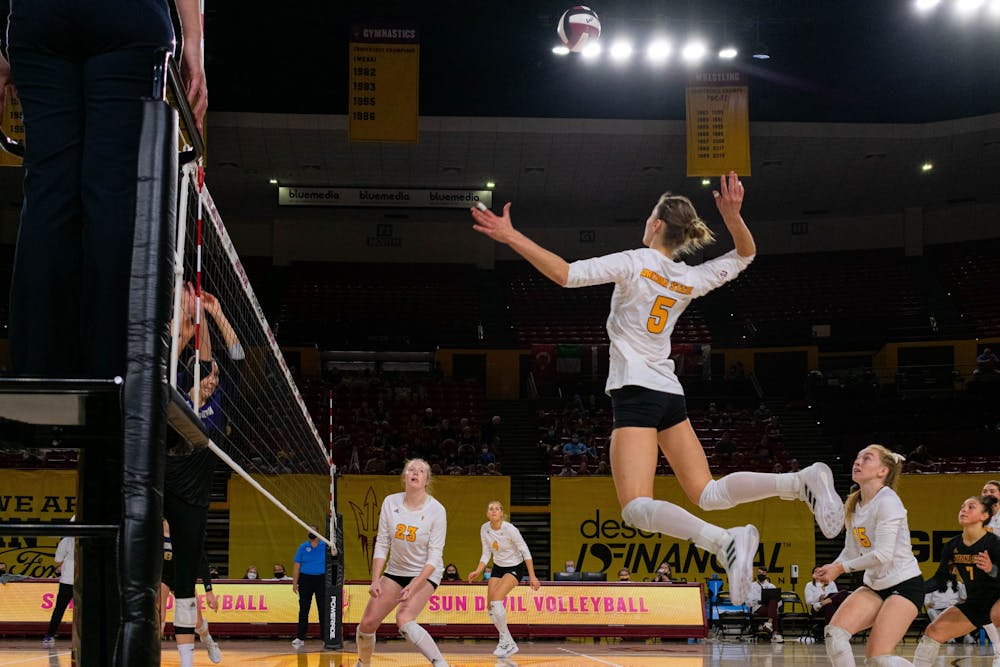Diversity on a team is important, yet it can be hard to come by. That is not the case for ASU volleyball. The team features six international players as well as two international coaches, Sanja Tomasevic and Carlos Moreno.
There are players from all over the world such as sophomore outside hitter Roberta Rabelo from Brazil, sophomore libero Jinna Zeng from Canada, and sophomore middle blocker Ayyuce Altintas from Turkey.
Despite their different homelands and upbringings, the team works to compete together to accomplish the same goal: win volleyball games.
"I always feel like diversity brings so much more to the team, and I don't see any negative effects of it," Latvian sophomore outside hitter Marta Levinska said. "I feel like diversity gives a lot of different perspectives and a lot of different personalities, which is good."
However, diversity can come at a cost for international players themselves. Some of the international players have had to give up a lot to come play in the U.S. Starting college is stressful for any young adult, but coming halfway across the world to do it, dealing with language barriers and cultural differences all while competing as a Division l athlete is a lot to handle.
"For me, the language is so hard," junior middle blocker Beatrice Badini, who is from Italy, said. "You have to think, talk, read in a language that's not yours."
In order for players to come here, adjustments have to be made both on and off the court. The game differs around the world. International rules are different and the style of play changes from region to region, as well as the levels players are competing at. For example, some international players must decide whether they want to play professionally in Europe or play at the collegiate level in America. Sometimes there is a big change of pace between the two, and players have to adjust.
"When you come from Europe, it's a totally different ball game. It's much faster, and people are playing much more intentionally," junior outside hitter Iman Isanovic from Bosnia and Herzegovina said. "In Europe, it's much more physical. Here, you have to think more. You have to think more when you play the game, and I think that made me a much much better player."
Isanovic also said that since coming to America to play in the NCAA, her perspective on volleyball has changed.
"I'm a student of the game," Isanovic said. "When I went back to play for my national team, I couldn't see the game the same way."
The team has worked to represent the players and where they come from. During home games this season, the flags representing the countries of the six foreign players are displayed from the second level in Desert Financial Arena. This helps to show that the team not only accepts their diversity, but embraces it.
"I'm proud to be international here and to be Italian," Badini said.
When hearing what these players had to give up to come here and the adjustments they have had to work hard to make, some may question if it is worth it. Playing college volleyball is not the only option for many European players, as they have the chance to play professionally in leagues across Europe. For a lot of them, playing in European leagues means being closer to home, enabling them to spend more time with their friends and family and be in a more familiar setting. Still, the six international players on ASU's team decided that the opportunity to play in America was worth the cost of what they had to give up.
"As soon as I came here and saw all of the opportunities that I had, it's definitely the best decision that I made," Isanovic said.
Reach the reporter at ahoppes1@asu.edu and follow @aviannahoppes on Twitter.
Like The State Press on Facebook and follow @statepress on Twitter.
Continue supporting student journalism and donate to The State Press today.




